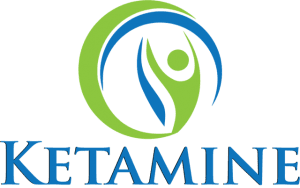Ketamine for addiction recovery is emerging as a promising approach to tackle substance abuse. Here’s why ketamine is gaining traction in addiction treatment:
- Ketamine can quickly reduce cravings, potentially curbing the cycle of substance abuse.
- It may help improve the effectiveness of psychological therapies.
- The drug acts by enhancing neuroplasticity, potentially rewiring the brain’s response to addiction.
- Ketamine is known to block drug-related memory reconsolidation, thus reducing the risk of relapse.
Ketamine has shown promise in treating various addictions, including alcohol, cocaine, and heroin, though more research is needed to fully understand its potential and establish robust treatment protocols. As researchers dig deeper into these possibilities, there’s hope for many struggling with addictions.
As an expert in ketamine for addiction recovery, my journey began with studying its impact on mental health. My focus has been on understanding how ketamine can offer new paths for recovery and improve lives. Let’s explore these possibilities further.

Understanding Ketamine
Ketamine is a dissociative anesthetic that has been used in medical settings for decades. Originally developed as a surgical anesthetic, it’s known for its ability to induce a trance-like state while providing pain relief and sedation. This unique characteristic allows patients to feel detached from their surroundings, which is why it’s classified as a dissociative drug.
One of the primary ways ketamine works is by blocking the NMDA receptor in the brain. This receptor is a part of the glutamate system, which is crucial for learning and memory. By inhibiting the NMDA receptor, ketamine alters normal neurotransmission, leading to its anesthetic and hallucinogenic effects. This action is believed to contribute to its potential in treating addiction by disrupting the neural pathways associated with substance abuse.

Ketamine is also known for its hallucinogenic effects. At higher doses, it can induce vivid visual and auditory hallucinations, as well as an “out-of-body” experience. These effects have made ketamine a popular recreational drug, known by street names such as “Special K” or “Super K.” However, in a controlled, clinical setting, these same properties are being harnessed to explore therapeutic benefits, particularly in addiction recovery.
In recent years, ketamine has gained attention as a promising treatment for various psychiatric conditions, including depression and anxiety. Its rapid-acting nature distinguishes it from traditional antidepressants, which often take weeks to show effects. This rapid action is why researchers are keen to explore its potential in addiction treatment, where quick intervention can be crucial.
As we continue to explore ketamine’s multifaceted role, it’s important to understand how this drug, once primarily associated with anesthesia, is now opening new doors in the field of addiction recovery.
Ketamine for Addiction Recovery
Ketamine is showing promise in the field of addiction recovery, offering hope to those struggling with substance dependence. One of the key ways ketamine assists in addiction recovery is through its impact on neuroplasticity. Neuroplasticity refers to the brain’s ability to reorganize itself by forming new neural connections. This process is essential for learning new behaviors and breaking old habits. Ketamine improves neuroplasticity, helping the brain to “re-wire” itself, which can be crucial for overcoming addiction.
Another significant benefit of ketamine in addiction treatment is its ability to reduce cravings. Cravings are a major hurdle in addiction recovery, often leading to relapse. Ketamine’s action on the NMDA receptor can help alter the brain’s response to addictive substances, decreasing the intensity of cravings. This reduction in cravings can provide individuals with the mental space needed to focus on recovery and make healthier choices.
Ketamine also plays a role in improving therapy outcomes. When used in conjunction with traditional therapy methods, ketamine can improve the effectiveness of psychological treatments. It is thought to make the brain more receptive to new ideas and behaviors, increasing the efficacy of therapy sessions. This can lead to more successful treatment outcomes and long-term recovery.
In clinical settings, ketamine has been shown to prolong abstinence from substances like alcohol and cocaine. Research indicates that individuals who receive ketamine treatment alongside therapy are less likely to relapse compared to those who only undergo therapy. This suggests that ketamine can be a powerful tool in maintaining sobriety and preventing relapse.
As more studies are conducted, the potential of ketamine in addiction recovery becomes increasingly evident. While further research is needed to fully understand its mechanisms and long-term effects, ketamine’s ability to improve neuroplasticity, reduce cravings, and improve therapy outcomes marks it as a promising option in the fight against addiction.
Mechanisms of Action
Ketamine’s unique ability to aid in addiction recovery lies in its impact on brain chemistry and structure. Let’s explore how it works:
Glutamate Activity
Ketamine primarily acts on the brain’s glutamate system, which is crucial for learning and memory. By blocking the NMDA receptor, a subtype of glutamate receptor, ketamine alters neurotransmission. This disruption can help reset the brain’s response to addictive substances, reducing cravings and improving motivation for recovery.
Synapse Formation
Beyond just altering neurotransmission, ketamine promotes the formation of new synapses. Synapses are the connections between neurons that allow information to flow through the brain. By increasing synapse formation, ketamine improves neuroplasticity, allowing the brain to create new pathways. This is vital for learning new behaviors and breaking free from the cycle of addiction.
Neural Network Disruption
In addition to enhancing synapse formation, ketamine disrupts existing neural networks associated with addiction. This disruption can break the reinforcing loops that keep individuals stuck in addictive behaviors. By rewiring these networks, ketamine helps the brain form healthier patterns, aiding in long-term recovery.

These mechanisms make ketamine a promising tool for addiction recovery. As more research unfolds, understanding these processes will be key to developing effective treatments and integrating ketamine into broader therapeutic strategies.
Clinical Evidence and Trials
Research into ketamine for addiction recovery is growing, with promising results in treating both alcohol dependency and cocaine addiction. Let’s explore some of the key studies and their findings.
Alcohol Dependency
Several studies have explored ketamine’s potential to help those struggling with alcohol use disorder. In one notable randomized controlled trial (RCT), participants who received ketamine infusions alongside psychotherapy showed significantly better outcomes than those who received only therapy. The combination of ketamine and therapy led to prolonged periods of abstinence and reduced cravings, offering hope for those who find traditional treatments ineffective .
Cocaine Addiction
Ketamine has also been investigated for its effects on cocaine addiction. In a controlled laboratory study, participants undergoing ketamine treatment exhibited reduced cocaine use and cravings compared to those receiving a placebo. This study highlighted the potential of ketamine to alter motivation and diminish cue-induced cravings, which are major problems in overcoming cocaine addiction .
Randomized Controlled Trials
RCTs are the gold standard for clinical research, providing robust evidence for ketamine’s efficacy in addiction treatment. These trials have consistently shown that ketamine, when combined with behavioral therapy, can improve treatment outcomes. Participants in these studies often report improved motivation to quit and lower rates of relapse, making ketamine a compelling option for those resistant to conventional methods .
The evidence from these trials underscores ketamine’s potential as a transformative tool in addiction recovery. While more research is needed to fully understand its long-term effects, these findings pave the way for new treatment strategies that could significantly improve recovery outcomes for many individuals.
Frequently Asked Questions about Ketamine for Addiction Recovery
How does ketamine affect cravings?
Ketamine works by altering neurotransmission in the brain, which can significantly impact cravings. It affects the brain’s glutamate system, enhancing neuroplasticity and potentially rewiring pathways involved in addiction. This can reduce the intensity of cravings and help individuals regain control over their impulses. Many studies report that ketamine treatment leads to a decrease in drug-related cues and cravings, which are major obstacles in addiction recovery.
Is ketamine safe for addiction treatment?
Safety is a key concern when considering ketamine for addiction treatment. Ketamine can cause dissociative and hallucinogenic effects, so medical supervision is crucial. During treatment, medical professionals closely monitor patients to manage any potential side effects, such as lifted blood pressure or nausea. Clinics offering ketamine therapy adhere to strict safety protocols, ensuring that patients receive care in a controlled environment. While there are risks, the benefits of ketamine in a supervised setting can outweigh these concerns for many patients.
Can ketamine therapy prevent relapse?
Ketamine therapy has shown promise in prolonging abstinence and preventing relapse. By reducing cravings and enhancing motivation, ketamine can help individuals maintain sobriety after detoxification. When combined with behavioral therapy, ketamine’s effects are even more pronounced. This combination can lead to improved outcomes, as therapy provides the tools to cope with triggers and maintain abstinence. Research indicates that ketamine can play a significant role in relapse prevention, offering hope to those who struggle with maintaining recovery.
These insights into ketamine’s role in addiction recovery highlight its potential as a powerful treatment option. While more research is needed to fully understand its long-term effects, ketamine offers a promising alternative for those seeking to overcome addiction.
Conclusion
Ketamine is emerging as a promising treatment for addiction recovery, showing potential in reducing cravings and preventing relapse. Our Buy Ketamine Crystals Online service offers access to high-quality ketamine products, delivered discreetly to your door. This accessibility is crucial for those seeking alternative treatments for addiction.
Research indicates that ketamine, when administered under medical supervision, can have profound effects on the brain’s neuroplasticity and neurotransmission. These changes are vital in helping individuals regain control over their addiction and maintain long-term recovery. However, it’s important to note that ketamine therapy should be part of a comprehensive treatment plan, including behavioral therapy, to maximize its benefits.
Despite the promising results, further research is needed to fully understand ketamine’s long-term effects and optimal use in addiction treatment. Ongoing studies aim to refine treatment protocols and ensure safety, offering hope for more effective addiction recovery options in the future.
By choosing our service, you are taking a step towards exploring innovative solutions for addiction recovery. We are committed to providing quality products that support your journey to a healthier, addiction-free life.












Trackbacks & Pingbacks
[…] ketamine for addiction recovery […]
Comments are closed.